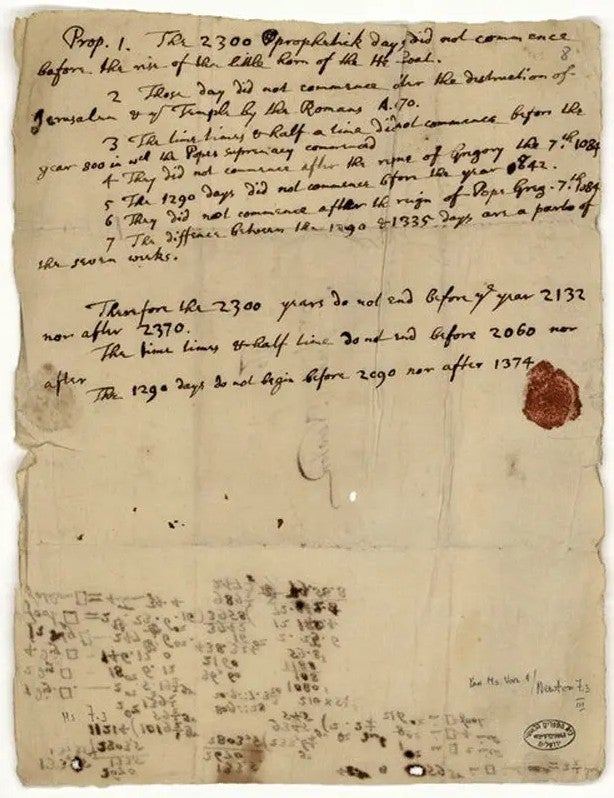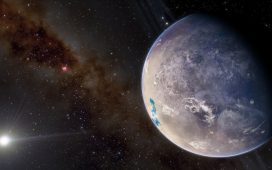Renowned scientist Sir Isaac Newton predicted when the world would end in a letter dating back more than 300 years ago.
A letter from the famous mathematician and physicist – who was best known for formulating the laws of gravity – revealed he believed the world would end in 2060, as he scrawled the warning above a series of mathematical calculations in 1704.
Also a theologian, Sir Isaac based his predictions for the end of the world on his Protestant interpretation of the Bible.
Sir Isaac calculated the year in question using maths and dates in biblical history to land on the prophesied apocalypse, which he put in the middle of the 21st century.
He used the days numbered 1260, 1290 and 2300 in the Book of Daniel and Revelations, which mark the end and beginning of certain important moments in the apocalypse. However, he interpreted these days as years.
Studying history, he settled on 800AD as the date the abandonment of the church formally began – the year the Holy Roman Empire was founded. He then calculated the world would reset 1,260 years after its founding.

He predicted the end would be marked by plagues and war, as he wrote in the 1704 letter: “And the days of short lived Beasts being put for the years of lived [sic] kingdoms, the period of 1260 days, if dated from the complete conquest of the three kings AC 800, will end AC 2060.”
Sir Isaac caveated his prophecy: “It may end later, but I see no reason for its ending sooner.
“This I mention not to assert when the time of the end shall be, but to put a stop to the rash conjectures of fanciful men who are frequently predicting the time of the end, and by doing so bring the sacred prophesies into discredit as often as their predictions fail.”
Professor Stephen Snobelen, from the history of science and technology department at the University of King’s College in Halifax, Nova Scotia, said Sir Isaac was “wary of prophetic date-setting” and “worried that the failure of fallible human predictions based on divine prophecy would bring the Bible into disrepute”.
Prof Snobelen said in his Statement on the Date 2060 that Sir Isaac didn’t believe the world would end in a literal sense.
He added: “For Newton, 2060 AD would be more like a new beginning. It would be the end of an old age, and the beginning of a new era – the era Jews refer to the Messianic age and the era premillenarian Christians term the Millennium or Kingdom of God.”













